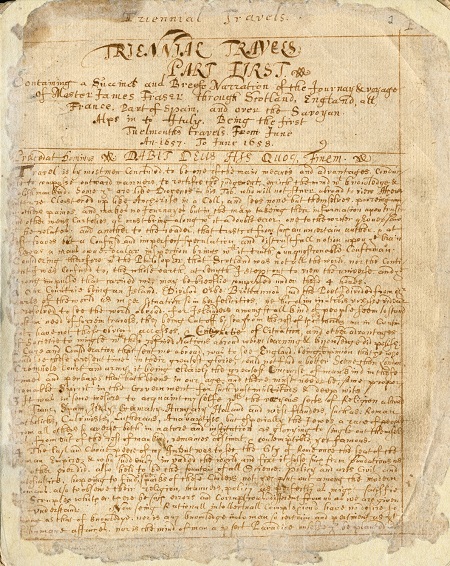Unlocking Languages and Palaeography for Historians
Module Leader: Professor David Worthington
This module gives you the tools you need to get started with deciphering older scripts written in several northern European languages. It is team-taught, relying on the expertise and research background of several Centre for History staff. Students taking it should have an interest in languages prior to enrolling but a knowledge of other languages is not compulsory so don’t be afraid! Drawing on a wide range of digitised English, Scots, Latin and, latterly, German original materials drawn from staff’s own research in north European (including Scandinavian) archives, as well as freely available online palaeographical and language-based materials, the module allows you to develop the skills required for historians to transcribe and critique manuscript sources, from medieval to modern, while critically assessing also the importance of language for historians of northern Europe. You will thus explore linguistic nationalism, considering, for example, issues around literacy, spelling, dates, place names, personal names and the history of dictionaries.
Indicative Content
- Introduction
- Languages, literacy and writing in late medieval and early modern Northern Europe
- Scots and English
- Medieval palaeography - book, charter, court/business, set and ‘free’ hands
- Early modern palaeography (I) - italic and secretary hand
- Early modern palaeography (II)
- Modern palaeography
- German for historians of northern Europe
Coursework
- Palaeographic exercise (30%)
- Essay (70%)

Title page of the ‘Triennial Travels’ of Master James Fraser (1634-1709), catalogue number MS 2538 in University of Aberdeen Museums and Special Collections, licenced under CC By 4.0.
Method of Delivery
This module will be delivered by a combination of online learning and live discussions and sessions. The primary means of engagement and debate of weekly topics will be through the module Discussion Board. This will be enhanced through the running of regular live sessions, which will take place on a day and time to be confirmed before the start of semester. All live sessions will be recorded and so students who are unable to attend these opportunities will be able to view the recordings in their own time.
Module Reading List
See Module Resource List.
Fees and funding
See UHI website.